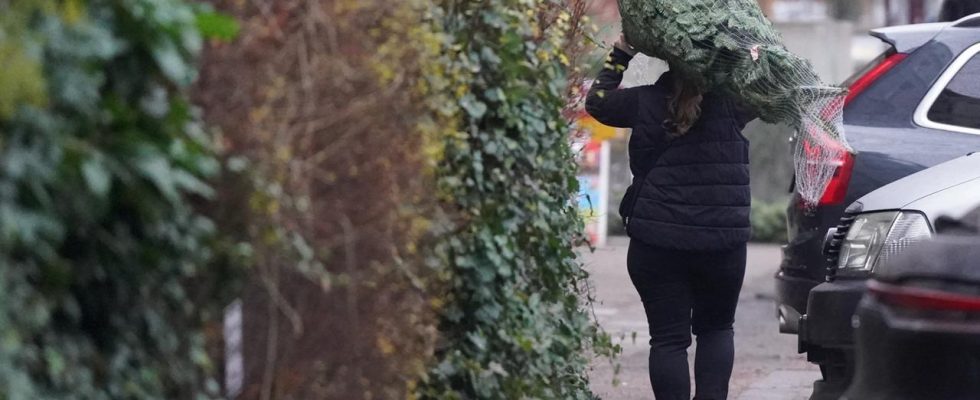Across Germany, BUND has had Christmas trees from hardware stores, street sales and directly from the producer tested for pesticide residues. The result: Two thirds of the trees were contaminated.
The results are alarming: 15 different pesticide active ingredients were detected in laboratory samples of Nordmann firs. These include two active ingredients that are not even approved in the European Union. Two other active ingredients are not approved for Christmas tree cultivation in the EU. Such trees shouldn’t actually be sold, says Corinna Hölzel from BUND. The environmental organization commissioned a laboratory to carry out the investigation. The authorities must now investigate this illegal practice.
Pesticide use in plantations
A total of 19 trees were purchased across Germany for the test. The laboratory discovered pesticide residues in 14 trees. Trees from plantations are particularly polluted. Most of the around 30 million Christmas trees that are sold in Germany every year come from there – for example from the Sauerland or Schleswig-Holstein. Trees are also imported from Denmark. Pesticides are often used, especially when growing in large plantations.
“People believe that with the Christmas tree they are bringing a piece of unpolluted nature into their living room. But Christmas tree plantations are fertilized and sprayed – insecticides, herbicides, fungicides. Everything is there,” says Hölzel.
Biodiversity is suffering
The illegally used substances in particular are dangerous for both the environment and people. The highly controversial pesticide glyphosate, which is suspected of causing cancer and whose approval was extended by the EU just a few weeks ago, was also detected in five Christmas trees this year.
Chemical-synthetic pesticides are a major problem for biodiversity. They enter the soil, air and water, killing and damaging beneficial insects. Six of the substances found are highly toxic to bees, birds and aquatic organisms.
No immediate danger
“We are exposed to a mix of chemicals in everyday life: plasticizers, heavy metals, fluorine compounds. Pesticides are now added to the mix, and this overall mix of chemicals can also be dangerous to health because of the interactions that the different substances can enter into with one another,” warns Corinna Hölzel.
This year’s BUND test shows that there is no change in the use of pesticides in Christmas tree cultivation compared to previous, similar tests. However, there is no immediate danger to humans due to the substances detected. However, Hölzel recommends airing regularly.
BUND recommends paying attention to organic seals
Depending on where the tree comes from, consumers can look for appropriate seals, proof of origin and cultivation. As with fruit and vegetables, the BUND recommends the seals of Bioland, Naturland or Demeter for Christmas trees. For trees that come from a forestry company, the FSC seal guarantees pesticide-free and sustainable cultivation.
“In principle, there are a number of other seals that are circulating,” says Corinna Hölzel from BUND. However, they served to attract consumers and persuade them to buy without there being any clear ecological criteria behind them. The “Fair Trees” seal, for example, confirms that cone pickers in Georgia, where the Nordmann fir seeds come from, are well paid. However, it says nothing about the use of pesticides on Christmas tree plantations.

